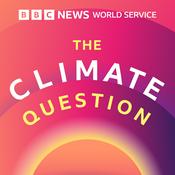108 episodes
- In this episode, Professor Charlotte Epstein reflects on how postcolonial perspectives reshape the study of norms in international relations, challenging conventional accounts of diffusion, compliance, and legitimacy. The conversation explores colonial inheritances embedded in contemporary normative orders, while examining positionality, experience, and the epistemological stakes of critical scholarship.
Charlotte Epstein
Charlotte Epstein is Professor at Tokyo College, University of Tokyo, where her work examines how language and political power have jointly constituted the modern international order.
Publications:
The power of words in international relations: Birth of an anti-whaling discourse
Who speaks? Discourse, the subject and the study of identity in international politics
Constructivism or the eternal return of universals in International Relations. Why returning to language is vital to prolonging the owl’s flight
The postcolonial perspective: an introduction
Against international relations norms: Postcolonial perspectives
Birth of the state: The place of the body in crafting modern politics
Content
00:00 – Introduction
01:42 – Colonialism and Postcolonialism: Conceptual Clarifications
04:08 – Rationale for Employing Postcolonial Perspectives
07:22 – Postcoloniality as Positionality Beyond Historical Periodisation
12:29 – Studying Norm Diffusion and Compliance Beyond Coercion
22:50 – Why Norms Reveal Colonial Inheritances More Sharply than Concepts
27:53 – From Norms as Practices to Norms as Epistemological Categories
32:25 – Situated Perspectives, Critical Authority, and the Risk of Relativism
35:42 – The Role of Experience in Postcolonial Norm Research
39:26 – Key Sources on the Concept of Experience
43:02 – ‘Norming’ and ‘Re-Norming’ in a Foucauldian Perspective
47:54 – The Ambivalences of Research Success
50:39 – Principal Challenges in Postcolonial Approaches to Norms
Hosted on Acast. See acast.com/privacy for more information. - In this episode, we sit down with political analyst Marc Saxer to explore his theory of Transformative Realism and why he believes we’re living through a profound systemic crisis. From the erosion of international norms to the urgent need for reimagined statecraft, Marc offers a compelling framework for understanding the forces reshaping our world and what political leadership must look like in response.
Marc Saxer
Marc Saxer is a political analyst, strategist, and writer with two decades of experience in international relations. He heads the Asia Pacific office of the Friedrich-Ebert-Shtiftung and convenes the Asia Strategic Foresight Group.
Publications:
Transformative Realism: How to overcome the system crisis
Geopolitical Conflict in the Wolf World: Great Power Competition and the Illiberal Revolt against the Liberal Order
Content
00:00 - Introduction
01:38 - Understanding Transformative Realism
04:50 - Defining Systemic Crisis
07:39 - Marc’s Most Compelling Crisis Case Study
15:08 - The Erosion of International Norms and Rules
18:24 - Recognizing the Signs of Systemic Crisis
20:18 - The Role of Agency in Transformative Realism
28:18 - Reimagining Statecraft and Political Leadership
33:44 - The Crisis in Modern Statecraft Education
Hosted on Acast. See acast.com/privacy for more information. - In this episode, Vineet Thakur unpacks the historical and intellectual foundations of Indian diplomacy. We discuss classical strategic traditions, civilisational and colonial legacies, caste and elite networks in diplomatic culture, non-alignment and strategic autonomy, neighbourhood diplomacy, and India’s contemporary practice of multi-alignment amid shifting great-power rivalries.
Vineet Thakur
Vineet Thakur is a University Lecturer in International Relations at the Institute for History, Leiden University. He received his doctorate from Jawaharlal Nehru University, New Delhi, in 2014 and has held academic positions and fellowships across India, South Africa, and the United Kingdom. His professional experience includes teaching appointments at Ambedkar University Delhi, the University of Johannesburg, and the School of Oriental and African Studies, following which he joined Leiden University in 2017. He has been a fellow at the University of Cambridge, the Netherlands Institute for Advanced Study, and Rhodes University.
His research is situated in postcolonial international relations, with a particular focus on the politics of knowledge, disciplinary hierarchies, and the global intellectual history of International Relations, especially in the Indian context.
Publications:
V.S. Srinivasa Sastri: A Liberal Life
India’s First Diplomat: V.S. Srinivasa Sastri and the Making of Liberal Internationalism
Postscripts on Independence: Foreign Policy Discourses in India and South Africa
Content
00:00 – Introduction and Framing of India’s Diplomatic Trajectories
02:03 – Mandala Theory and Kautilya’s Arthashastra as Lenses for Contemporary Regional Policy
05:10 – Intellectual and Historical Inspirations Behind India’s Diplomatic Traditions
06:32 – Civilisational State Narratives Versus Colonial Administrative Foundations of Indian Diplomacy
10:53 – Social Stratification and the Influence of Caste Networks on Diplomatic Recruitment and Culture
22:12 – Nehruvian Idealism and Non-Alignment as Strategy: Autonomy, Hedging, and Principled Neutrality
27:55 – Overlooked and Marginalised Practices in India’s Cold War Diplomatic History
30:30 – The Strategic Logic and Practical Outcomes of the “Neighbourhood First” Diplomatic Doctrine
35:18 – Structural Constraints and Policy Stalemate in India–Pakistan Diplomatic Engagement
37:34 – China’s Strategic Shadow and Its Effects on India’s Diplomatic Posture Towards Pakistan
39:08 – India’s Diplomatic Approach to Tibet in Historical and Contemporary Perspective
43:29 – Multi-Alignment as Strategy: Balancing Great Powers in India’s Contemporary Foreign Policy
47:45 – The Absence of a Permanent United Nations Security Council Seat and Its Diplomatic Consequences
51:15 – India–Africa Relations and the Underdeveloped Economic Dimension of South–South Diplomacy
54:21 – Hindu Nationalism and Its Influence on the Ideational Foundations of Indian Diplomacy
58:24 – Neglected Themes and Under-Researched Domains in the Study of Indian Foreign Policy
*** at 10:29, there is a missing word ‘overstated’
Hosted on Acast. See acast.com/privacy for more information. - In this episode, Martin Vladimirov unpacks Bulgaria’s evolving energy landscape in the aftermath of the war in Ukraine. We discuss shifts in the country’s energy mix, offshore wind prospects in the Black Sea, the strategic role of gas pipelines and interconnectors, and the future of key assets such as the Chiren gas storage facility, the Maritsa Iztok lignite complex, and potential new nuclear reactors.
Martin Vladimirov
Martin Vladimirov is Director of the Energy and Climate Program at the Center for the Study of Democracy (CSD), where his work focuses on European and Balkan energy security, energy transition pathways, and the geopolitical dimensions of Russian and Chinese economic influence. He has extensive experience as an energy analyst for The Oil and Gas Year, contributing in-depth reports on Kazakhstan, Azerbaijan, and Saudi Arabia, and has consulted for international oil companies across the GCC and MENA regions. Martin is also an affiliated expert with the European Geopolitical Forum in Brussels and previously worked as an energy and economic analyst for CEE Market Watch, covering Iran and Central Asia.
Publications:
Managing Assets Under OFAC Sanctions
Energy and Climate Security in Europe: From Crisis Response to Structural Transformation
The Kremlin Playbook in Mexico: Asymmetric Influence
The Imperative to Weaken the Kremlin’s War Economy: What the West Can Do
Closing the backdoor: The new TurkStream is here. Can the West stop it?
Content
00:00 – Introduction
01:38 – Bulgaria’s Evolving Energy Mix after the War in Ukraine
09:07 – Exploring Bulgaria’s Offshore Wind Potential
12:45 – Strategic Energy Pipelines Crossing Bulgaria
17:16 – Bulgaria’s Relationship with Gazprom and Gas Contracts
24:14 – The Greece–Bulgaria Gas Interconnector (IGB)
27:05 – Alexandroupolis LNG Terminal and Regional Gas Connectivity
28:53 – The Role of Chiren Underground Gas Storage
34:31 – The Future of the Maritsa Iztok Lignite Power Complex
40:50 – Assessing the Feasibility of Two New Nuclear Reactors
Hosted on Acast. See acast.com/privacy for more information. - This episode of The IR thinker features a wide-ranging conversation with Professor Dimitry Kochenov on what it really means to “belong” in a world where citizenship is conditional, unequal, and sometimes absent altogether. We unpack the paradox of citizenship as both a legal fiction and a lived necessity, probing whether institutions truly “grant” citizenship, what it means to live as stateless, and whether “real” EU citizenship exists beyond the rhetoric. The discussion traces how EU citizenship can simultaneously empower individuals, through mobility, rights, and protection, while also hollowing out democratic accountability in member states. We examine “market citizenship” and the monetisation of legal status, asking whether citizenship-by-investment schemes that effectively sell access to the EU should be abolished, and close with a critical look at multiple citizenship: is it an emerging path towards global justice or simply an additional layer of privilege for the already mobile?
Dimitry Kochenov
Professor Dimitry Kochenov is a leading scholar of global citizenship and constitutionalism, with a particular focus on the rule of law, EU federalism, and external relations law. He heads the Rule of Law research group at the Democracy Institute of Central European University in Budapest and teaches Global Citizenship at CEU’s Department of Legal Studies in Vienna. Through his work on statelessness, EU citizenship, and the political economy of “citizenship for sale”, he has become a key voice in contemporary debates on how legal status shapes human dignity, mobility, and the evolving architecture of international order.
Publications:
EU enlargement and the failure of conditionality: pre-accession conditionality in the fields of democracy and the rule of law
Citizenship
Citizenship and residence sales: rethinking the boundaries of belonging
Ukraine and the EU enlargement: what is the law and which is the way forward?
Content
00:00 - Introduction
02:02 - The Paradox: Can Institutions Grant Citizenship?
06:23 - Living Stateless: Can Humans Exist Without Citizenship?
16:56 - Does “Real” EU Citizenship Actually Exist?
36:06 - Democracy’s Double Edge: How EU Citizenship Both Empowers and Undermines
50:26 - Market Citizenship: When Human Worth Becomes Economic Value
56:39 - Citizenship for Sale: Should the EU abolish those schemes?
01:08:06 - One Citizenship or Many? The Multiple Citizenship Debate
Hosted on Acast. See acast.com/privacy for more information.
More Science podcasts
Trending Science podcasts
About The IR thinker
The IR thinker features in-depth interviews with leading experts in international relations, foreign policy, and global affairs. The IR thinker is an independent, non-partisan and non-aligned platform. It hosts a wide range of perspectives on international relations but does not endorse any political party, government or ideological position. Since its first episode in 2023, The IR thinker has produced more than 100 episodes as a pro bono initiative established by Martin Zubko, an international relations scholar and lecturer. Available on YouTube, Apple Podcasts, Spotify and Amazon Music. Hosted on Acast. See acast.com/privacy for more information.
Podcast websiteListen to The IR thinker, The Rest Is Science and many other podcasts from around the world with the radio.net app

Get the free radio.net app
- Stations and podcasts to bookmark
- Stream via Wi-Fi or Bluetooth
- Supports Carplay & Android Auto
- Many other app features
Get the free radio.net app
- Stations and podcasts to bookmark
- Stream via Wi-Fi or Bluetooth
- Supports Carplay & Android Auto
- Many other app features


The IR thinker
Scan code,
download the app,
start listening.
download the app,
start listening.



































